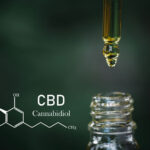Some songs just seem to arrive in our ears as though they were written specifically for us. These are the songs we are always excited to hear. They make us feel happy or nostalgic or energized or connected to others in ways that are not always easy to explain but are powerful nonetheless.
A favorite song is a perfect example of the ways in which music can have a positive impact on your day-to-day life. That positive impact can extend to supporting your recovery in a number of ways.
Music Can Fuel Your Exercise Routine
An energetic playlist can be a wonderful source of inspiration and support when you are working out. There are plenty of studies that demonstrate the ways in which listening to music while exercising can lead to better performance. You have probably experienced this yourself if you have ever listened to music while running, for example.
Why is this important to your recovery? Because regular exercise improves your physical health and mental health—and improvements to your well-being support your ongoing recovery. If music makes you more likely to exercise or can help you make your workouts more productive, it is also firming up the foundations of your recovery.
Music Can Help You Drift Off to Sleep
On the opposite end of the spectrum from music that pumps you up to exercise is music that can help lull you to sleep more quickly and makes it more likely that you will stay asleep. As with music and exercise, the studies about music and sleep are clear. You have probably experienced this yourself—maybe during your childhood when a lullaby could reliably lead you into dreamland,
Why is this important to your recovery? Because restful sleep is key to staying healthy both mentally and physically—and that means sleep supports your recovery as well. If music increases the amount and improves the quality of your sleep, it is underpinning your recovery, too.
Music Can Help You Focus
When your mind is going in several directions at once, it can seem impossible to get anything done. And when you are having trouble getting things done, you are likely experiencing more stress than you would like. Studies show that if you pick the right kind of music, you can improve your concentration. You have probably experienced this yourself—perhaps during your student days when some familiar, soothing music made studying feel easier.
Why is this important to your recovery? Because lowering your stress levels is essential as you work to avoid returning to drugs or alcohol—and that means improving your focus and productivity also gives your recovery a boost.
Music Can Be a Mood Booster
We have come full circle back to how music you truly enjoy—like your favorite songs—can boost your mood. Studies suggest that music can be good for your mental health as it reduces symptoms of depression and anxiety. You have probably experienced this yourself—maybe when your favorite song comes on the radio and you find yourself singing along and tapping your feet.
Why is this important to your recovery? Because better mental health (as we have noted above) is a key factor in keeping your recovery on track—and that means that the time you devote to enjoying your favorite music is also time spent supporting your recovery.
Additional Options for Making Music a Positive Part of Your Life
So far, we have largely considered music you are likely to hear from a recording. But that, of course, is not the only way to interact with music.
Going out to hear live music—anything from a high school orchestra to your favorite band to a concert series in the park—is a great way to spend time with friends and family. A positive social life is good for your recovery, and enjoying music together can be a great bonding experience.
You might also find that you enjoy dancing of one kind or another. Whether you look for a dance class to take or head to an establishment that hosts social dancing, you can get some exercise, see other people, and have some fun.
And, of course, you can make music yourself. You could dust off that instrument from your school days, join a local choir, or even start up a garage band. Making music yourself can be extremely satisfying, and you do not have to be a master musician to enjoy it.
All of these activities that are centered around music can support your recovery.
Bring Harmony Back to Your Life by Leaving Drugs or Alcohol Behind
At French Creek Recovery Center—located in Meadville, Pennsylvania—we help individuals struggling with drugs or alcohol. We provide personalized care, including medically supervised detoxification, a rehabilitation program that prepares you to return to daily life through group and individual therapy sessions, and aftercare which offers ongoing support as your recovery journey gets underway.
We can help you bring joy and harmony back to your life. When you are ready to make a change, we are here to help.






